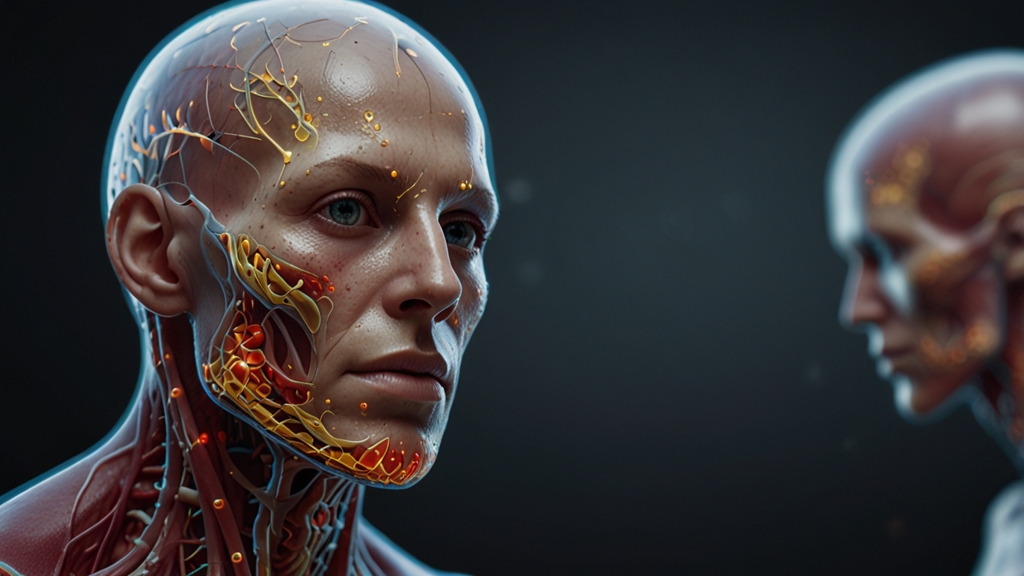The Immune System Unmasked: How Your Body Fights Off Invaders
The human body is an incredible machine, engineered with intricate systems for survival. Among these, the immune system is one of the most critical in maintaining health. It functions as a vigilant defender, constantly on the lookout for hostile invaders like bacteria, viruses, and other pathogens. But how exactly does this complex network operate to keep us safe?
First Line of Defense: The Innate Immune System
The immune system can be broadly divided into two main components: the innate immune system and the adaptive immune system. The innate immune system acts as the body's first line of defense. It is non-specific, which means it doesn't target particular pathogens but instead responds to all invaders in a generalized manner.
Physical barriers like the skin and mucous membranes serve as initial obstructions, preventing many pathogens from entering the body. When these barriers are breached, specialized cells such as macrophages and neutrophils are quickly dispatched to the site of infection. These cells engulf and digest foreign particles through a process known as phagocytosis, effectively neutralizing the threat.
“The innate immune system is like a security guard in a building, vigilant and ready to tackle any intruder without asking questions.”
The Adaptive Immune System: Tailored Defense
While the innate immune system offers immediate but non-specific protection, the adaptive immune system provides a more targeted response. This part of the immune system involves highly specialized cells known as lymphocytes, which include T-cells and B-cells. These cells can recognize specific pathogens and retain memory of them, enabling the body to respond more rapidly and efficiently upon subsequent exposures.
B-cells are responsible for producing antibodies, proteins that specifically bind to and neutralize antigens present on pathogens. This process marks the invaders for destruction by other immune cells. On the other hand, T-cells come in various forms, each with distinct functions. Helper T-cells assist in activating B-cells, while cytotoxic T-cells can directly kill infected cells.
“Think of the adaptive immune system as a specialized SWAT team, trained to combat specific threats with precision and strategy.”
Communication and Coordination
One of the most remarkable features of the immune system is its ability to communicate and coordinate responses. Cytokines are signaling proteins that play a crucial role in this process. They act as messengers between cells, orchestrating the immune response, directing cells to the site of infection, and promoting tissue repair once the threat has been neutralized.
Furthermore, the immune system is not a standalone entity. It interacts closely with other bodily systems, such as the nervous and endocrine systems, to maintain overall homeostasis. This intricate dance ensures that immune responses are appropriately regulated, preventing overreactions like allergies or autoimmune diseases, where the body erroneously attacks its own cells.
The Role of Vaccination
Vaccination is one of the most effective strategies for bolstering the immune system's defenses. Vaccines simulate an infection, prompting the adaptive immune system to produce memory cells without causing the disease. This preemptive action equips the body to combat real pathogens more efficiently if they are encountered in the future.
The success of vaccines in controlling diseases like polio, measles, and influenza underscores the importance of immunization programs. By understanding the principles of immune memory and pathogen recognition, scientists can design vaccines that offer robust protection against a wide range of infectious agents.
Conclusion
The immune system is a marvel of biological engineering, capable of defending the body against a myriad of threats. From the rapid, all-purpose response of the innate immune system to the precise and agile strategies of the adaptive immune system, these mechanisms work in concert to keep us healthy. Advances in immunology continue to unlock new ways to enhance our immune defenses, promising a future where we are ever more resilient against disease.
“A well-functioning immune system is the cornerstone of good health, and understanding its complexities is the key to unlocking new medical breakthroughs.”














